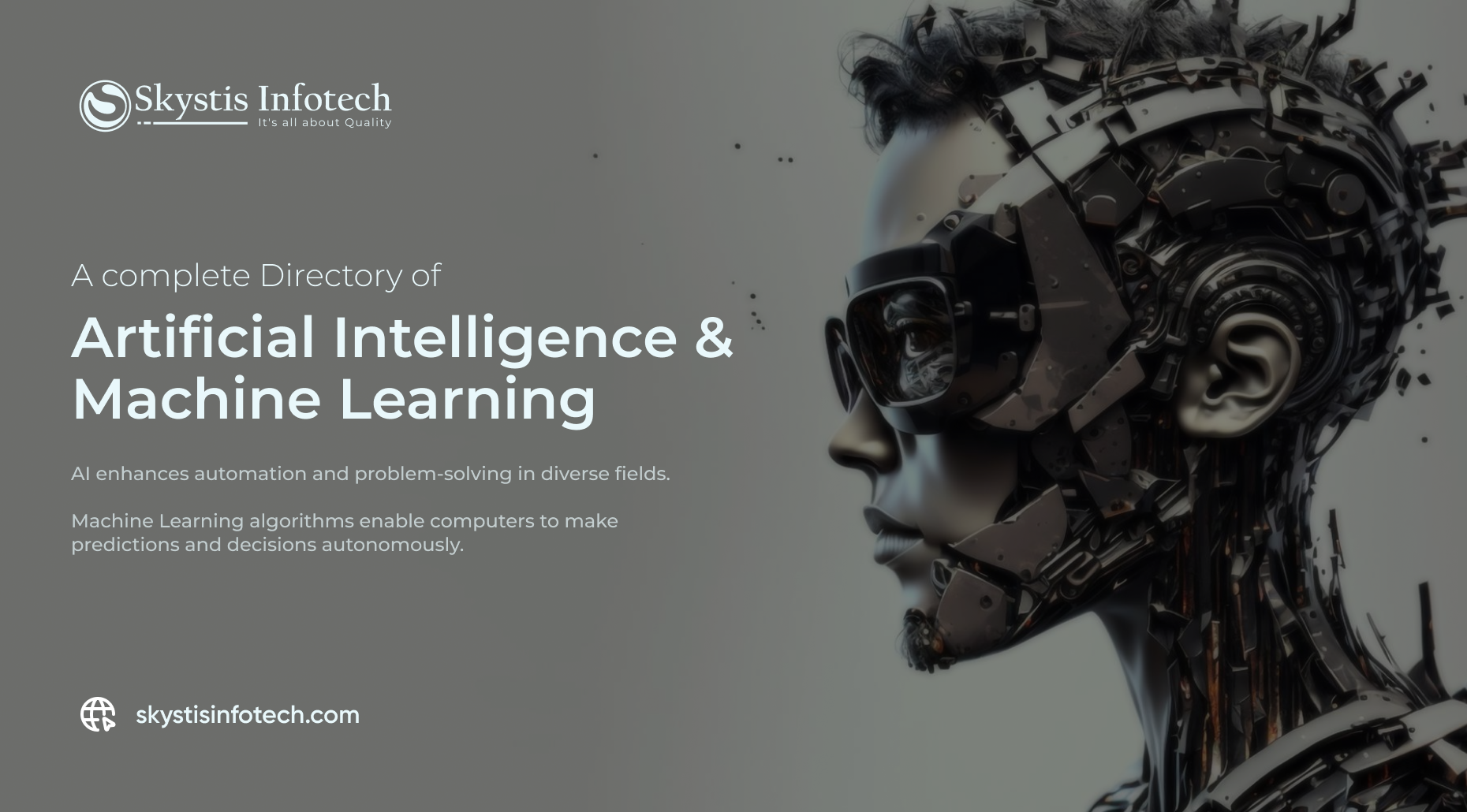
Artificial Intelligence (AI) and Machine Learning (ML)
Introduction to AI and ML
Artificial Intelligence (AI) is a broad field of computer science that focuses on creating systems capable of performing tasks that typically require human intelligence. These tasks include learning, reasoning, problem-solving, perception, and language understanding.
Machine Learning (ML), a subset of AI, involves the development of algorithms that can learn from and make predictions or decisions based on data. Rather than being explicitly programmed to perform a task, ML systems are trained using large amounts of data and algorithms that give them the ability to learn how to perform the task.
Current Trends in AI and ML
AI and ML technologies are evolving rapidly, with several key trends shaping their development:
- Automation: Enhanced by AI, automation is expanding into more complex tasks. For example, robotic process automation (RPA) is being supplemented with AI to perform tasks that require decision-making.
- Natural Language Processing (NLP): Advances in NLP are making interactions between humans and machines more seamless, evidenced by sophisticated chatbots and virtual assistants.
- Explainable AI (XAI): As AI systems become more complex, there’s a push to make AI decisions transparent and explainable for users, especially in critical areas like healthcare and finance.
- Edge AI: Processing AI algorithms locally on devices (at the “edge” of the network) reduces latency and preserves privacy, a trend amplified by the growth in IoT devices.
- AI Ethics and Governance: With AI playing a more significant role in our lives, there’s a growing focus on ethical considerations and governance frameworks to ensure responsible use.
The Impact of AI and ML on Various Industries
AI and ML are transforming industries in unprecedented ways:
- Healthcare: AI is being used for diagnostics, personalized medicine, and operational efficiencies in hospitals. ML models can predict patient outcomes and assist in drug discovery.
- Finance: AI helps in fraud detection, algorithmic trading, and customer service automation. ML can analyze vast datasets to provide financial insights and risk assessments.
- Retail: AI enhances customer experience through personalized recommendations and chatbot assistance, while ML optimizes inventory management and logistics.
- Manufacturing: AI-driven predictive maintenance, quality control, and supply chain management are becoming standard practices in the industry.
Case Studies of Successful AI and ML Implementation
- Healthcare – DeepMind: Google’s DeepMind developed an AI that can recommend treatment for patients with acute kidney injury up to 48 hours earlier than doctors.
- Finance – ZestFinance: ZestFinance’s ML models interpret thousands of data points to help companies make more accurate credit decisions and expand credit access.
- Retail – Stitch Fix: Online styling service Stitch Fix uses AI and ML to personalize clothing selections based on individual customer preferences.
Future Predictions for AI and ML
The future of AI and ML is expected to see:
- General AI: The next big leap would be towards General AI, where systems can handle any intellectual task that a human being can.
- AI in Cybersecurity: AI and ML will play a significant role in cybersecurity, using pattern recognition to detect and defend against sophisticated cyber threats.
- AI-Driven Innovation: AI is predicted to be a key driver of innovation and new product development, enhancing creativity across industries.
- Interdisciplinary Integration: AI and ML will continue to merge with other fields, such as quantum computing and biotechnology, leading to breakthroughs we can hardly imagine today.
- Ethical AI: As AI systems become part of the societal fabric, ethical AI development will become a discipline in its own right, influencing how AI solutions are designed and deployed.
The evolution of AI and ML continues to push the boundaries of what’s possible, heralding a future where they are integrated into every aspect of human life.

sprunkiy
February 20, 2025 ,7:00 pmThe convergence of gaming and music production: Sprunki blurs lines between entertainment and professional tools.